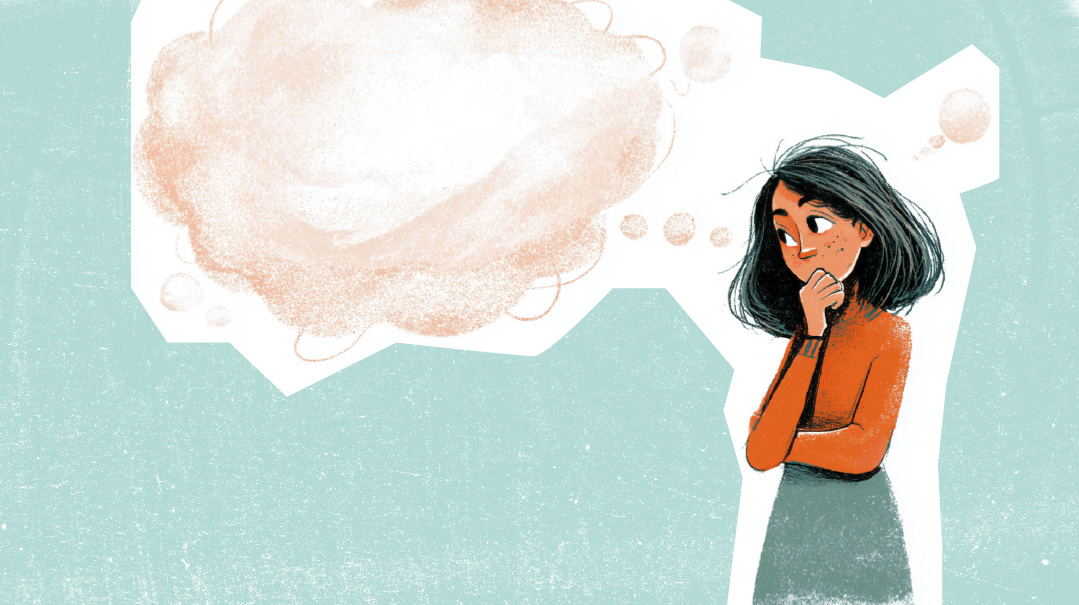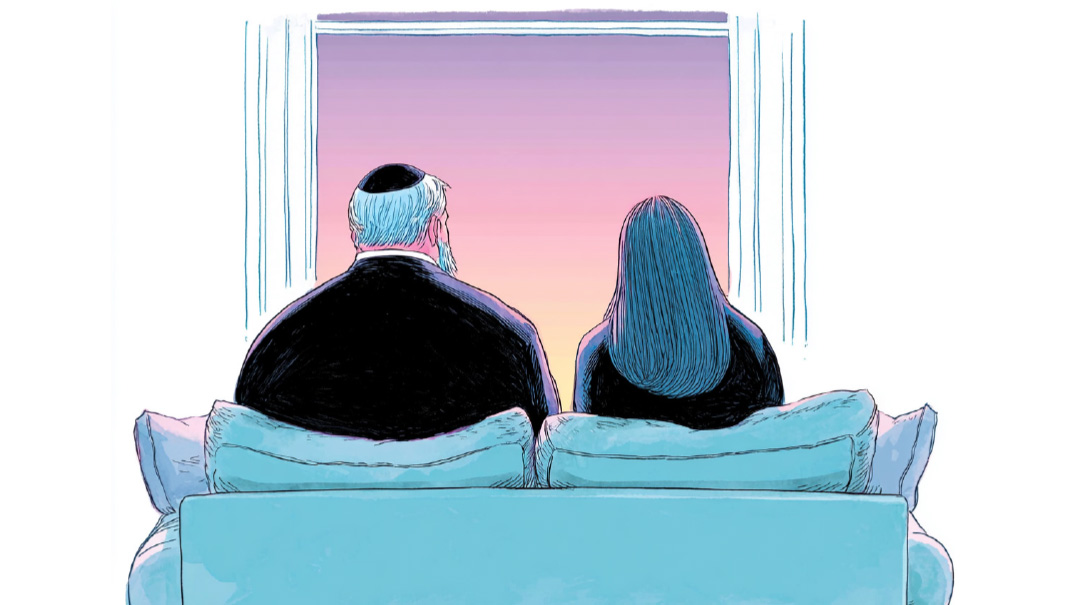Go Back in Time
| June 17, 2025If you’re triggered by something benign, the source is probably your childhood

Go Back in Time
If you’re triggered by something benign, the source is probably your childhood
Abby Delouya
Sometimes, things happen and we fall into despair. Then, aside from what’s actually making us feel this way, we may find ourselves having difficulty accepting our feelings. We’re always surrounded by so many blessings, and even during difficult times, we know everything that happens to us has been specifically picked for us by our loving Father as the best possible outcome for our development. Yet, many people still feel overwhelmed and possibly even disproportionately reactive and affected by difficult experiences.
One of the reasons these moments can hit so hard is because sometimes our reactions aren’t really rooted in the present. I’ve shared this axiom before — “If it’s hysterical, it’s historical.” This means we may experience something upsetting even more deeply than we otherwise would because it’s hitting up against the jagged, unhealed shards of our pasts.
A hysterical reaction is something that’s felt as disproportionately intense — the reaction doesn’t match the stimulus. When that happens, it might be worth investigating if something from the past is triggering us. You can start by asking yourself, “Does this situation remind me of anything from my past? When was the last time I felt all these big painful feelings coming up?”
Sometimes we don’t have an exact memory, but a thought or general experience floats up to our consciousness. (A time of year, a childhood song, the image of your grandmother’s house….) It’s often surprising what our brains and bodies experience as deeply felt. Whether or not you would naturally make that link, now you have an avenue to explore further.
If nothing comes up, you can simply ask yourself, “What age is this coming from?” Little kids have big feelings that sometimes go unprocessed and get stuck.
When we bring simple awareness to an overwhelming situation, it can bring some clarity and the ability to slow our reactions down.
Abby Delouya RMFT-CCC, CPTT, is a licensed marriage and family therapist in private practice with a specialty in trauma and addiction. She’s also the Director of Intake and Care Management at Ray of Hope.
Stop Eating Your Money
Rivky Rothenberg and Tsippy Gross
Grocery shopping is a top contender for overspending. But cutting costs at the grocery store can feel uncomfortable and restrictive. Here are some hacks to help reduce grocery spending while feeling empowered:
Pick a grocery shopping day and stick to it. Each time you go into a store, even if it’s just for one small thing, you end up spending more money! Some people find that scheduling their day for the middle of the week will carry you through Shabbos and at least the beginning part of the next week.
Shopping at certain stores can save time, but the cost on basics can really add up. Be open to shopping in stores that have better prices.
Shop with a flexible list — for instance, write “fruit” instead of “nectarines” so you can determine the costs of produce in the store.
Running out? Get creative with what you have in your cupboards so you can try to push off that shopping trip to your designated day. It feels good to finish things up, and trying new stuff is fun.
Don’t go shopping hungry!
When shopping with kids, decide in advance if you will be buying them a snack or not, and what that will be. Better yet, try to shop without the extra hands, as their “just this” suggestions can really add up. On the flip side, if you are taking them, it’s a great chance to educate them about things like unit prices and sales.
Tsippi Gross is a business consultant and Rivky Rothenberg is a CPA. Together, they founded the Fortune Formula to help businesses and Ashir to help newlyweds and families achieve long-term financial success.
Complicated Compassion
Shoshana Schwartz
We’re a compassionate people by nature. We genuinely want to care, show up for others, and help make their days a little easier. So when we feel resistance to being kind, supportive, or emotionally available, it can feel confusing. Why wouldn’t we want to be compassionate?
Sometimes, resistance stems from a hidden belief that showing compassion means we’re agreeing with the other person’s choices or point of view.
But that’s not what compassion is.
If your sister is struggling with intense jealousy, or your child is feeling picked on by his friends or teachers, you don’t have to justify or agree with them to feel for them. You can listen without arguing, and validate their pain without validating the story behind it. Saying, “That sounds really hard,” isn’t the same as saying, “You’re right.”
Compassion means offering your connection and caring, not your endorsement.
Shoshana Schwartz specializes in overcoming compulsive behaviors, including emotional eating, codependency, and addiction. She’s the founder of The Satisfied Self.
(Originally featured in Family First, Issue 948)
Oops! We could not locate your form.







